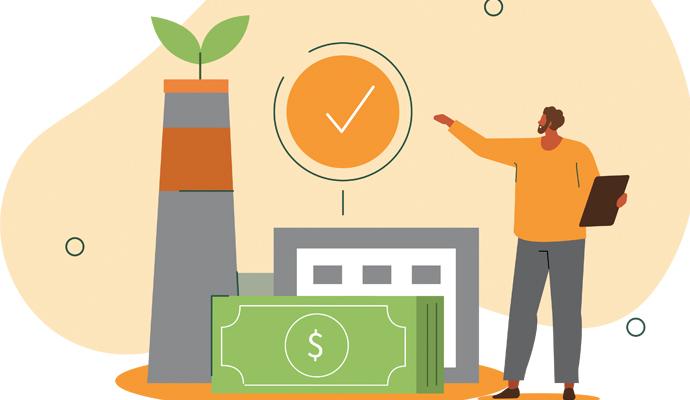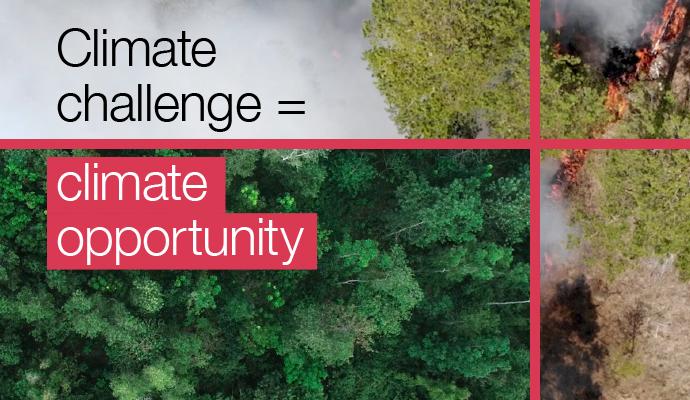A Different Kind of Climate Change
Businesses must ask themselves what impact they can make on society as social and economic climates change around the world.
(originally published by Booz & Company)If there is one immutable law in life, it is this: Every action has a reaction. And I’d like to add a corollary: Every action has unintended consequences.
I can hardly imagine that the architects of ObamaCare thought one of the outcomes of healthcare reform would be that companies like UPS would boot employees’ spouses off their health plans if those people could receive coverage from their own employers. Nor did they likely envision that IBM and Time Warner would send their retirees to buy health insurance in the new government-run marketplaces rather than providing coverage as they had traditionally done. No, policymakers were thinking about the 40 million or so Americans who had no insurance at all.
On a larger stage, we have witnessed the pain of austerity across Europe—austerity that was instituted in hopes that fiscal discipline would spur private sector investment and economic growth, but that has instead produced pessimism, street protests, and even a dramatic increase in the HIV infection rate. In the United States, Congress is cutting food stamps in an attempt to address deficits that are seen by some as a far more pressing problem than hunger. Perhaps they believe that a gnawing in the gut will make people work harder.
These are the effects of climate change. No, this isn’t the climate change that manifests itself in higher sea levels, extreme weather, and retreating glaciers. This climate change is psychological. We are beginning to realize that to be us as we’ve come to think of ourselves is no longer affordable. It isn’t global warming we’re facing; it’s social and economic cooling.
This is far deeper than any debate over current deficits or stimulus plans. It is the existential tension between who we say we are and what our actions say about who we actually are. The gap between these two is widening dangerously. The European ideal of a robust social safety net that includes healthcare, education, and state pensions may not be sustainable in its current form as the population ages and companies seek lower wages and taxes in other parts of the world. In the United States, the cherished notions of boundless resources, merit-based climbs up the economic ladder, and compassion for the less fortunate are being exposed as two-dimensional fantasies masking a much harsher reality.
Neither the left’s nanny state nor the right’s daddy state is the answer for addressing this climate change. This is not about liberal versus conservative. This is about something far more difficult: an informed, robust, grassroots discussion of values, expectations, and the trade-offs that must be made in a world of constrained resources. We must take the long view as well as the short.
For example, IBM and Time Warner’s decisions about retiree healthcare make perfect sense in microeconomic terms. It was a predictable surprise. If companies can save money by replacing coverage for their former employees with subsidies for publicly provided health plans, the market tells them they should do it. This is simply a continuation of the approach that substituted 401K plans for corporate pensions.
What we have not come to grips with, however, is the macroeconomic impact of decisions like these. For example, are we ready for a far less affluent elder population? As baby boomers retire, the ratio of pension-supported retirees to self-supported retirees is going to shift because fewer organizations are offering pensions. According to Fidelity, the average balance in the 401K accounts of those aged 55+ is just US$143,000. Does that support a lot of travel, second homes, generous gifts to the grandkids, or even the jovial dinners out we see featured in so much advertising? How many will buy a new car if they can’t afford their medications or enough to eat? Eight percent of food stamp recipients in the U.S. are aged 60 or older; that number will likely grow. The climate is changing.
If more companies follow the lead of UPS, we will see a growing divide between haves and have nots within households. When the have nots live over there somewhere, it is easy to ignore them. But when one person in a home has a generous corporate health plan and the other has a barebones plan and is diagnosed with cancer, the vast glacier separating care options will be impossible to ignore.
In environmental climate change terms, we are seeing the inevitable chaos of a system’s transition from one set of norms to another. The question before us is whether we can manage to navigate the process more gracefully.
The first step, no matter where you sit in this interconnected world, is to have honest conversations about social and economic climate change: What does it mean to be a citizen, both in terms of what you are expected to give and what you can expect to get? What is the purpose of business? Of the state? Of the individual? What are the values we commit to honoring—not just in our talk, but in our actions? How will we measure our performance, beyond earnings-per-share, in achieving those purposes and living those values?
Business has a critical role to play in making this transition to a new normal. Businesses do have social impact, no matter what those who advocate shareholder capitalism say. It is manifest through relationships with customers, employees, suppliers, and communities, as well as investors. The only question before each business is whether its own impact will be positive or negative.
This climate change is real and its effects are being felt now. What are you and your business doing about it?





